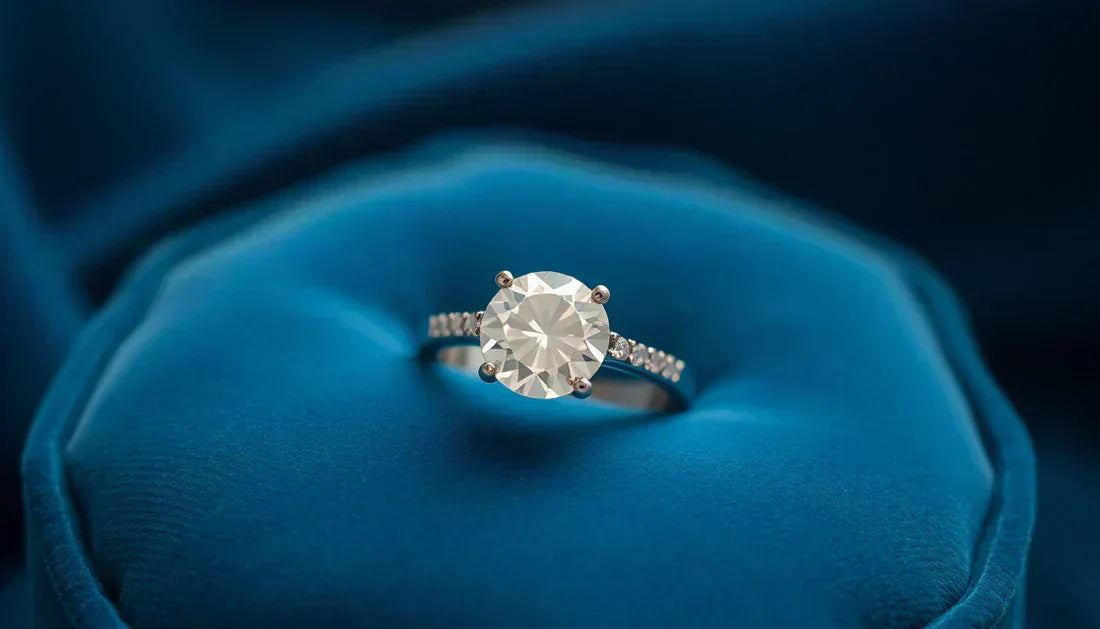
The Kimberley Process, Explained: What “Conflict-Free Diamond” Should Mean for You
Share
The Kimberley Process, Explained: What “Conflict-Free Diamond” Should Mean for You

“Conflict-free” is more than a marketing line. It’s a promise about how a diamond’s journey is governed, verified, and disclosed. This guide clarifies the Kimberley Process (KP)—what it does well, where it’s limited, and the extra steps we take so you can choose brilliantly and responsibly.
What is the Kimberley Process?
The Kimberley Process (KP) is an international certification scheme created to keep rough diamonds that finance armed conflict out of legitimate trade. Participants—governments, industry, and civil society—use a standardized certificate and controlled trading system to govern cross-border shipments of rough diamonds.
KP certificates travel with rough parcels. Once stones are cut and polished, they enter retail as finished diamonds—but polished stones aren’t themselves KP-certified. That’s why responsible retailers add due diligence beyond the KP baseline.
What the KP covers—and what it doesn’t
Covered by the KP
- Applies to rough diamonds only moving across borders.
- Requires each rough shipment to carry a valid KP certificate.
- Limits trade in rough diamonds to other KP participants via controlled channels.
Not covered by the KP
- Does not certify polished diamonds or finished jewelry.
- Doesn’t directly regulate labor abuses, state-linked violence, or environmental harms beyond the rebel-financing definition.
- Doesn’t replace company-level traceability, auditing, or risk-based due diligence.
Why the KP matters to you
The KP established a baseline recognized by the UN and adopted by 80+ participants. For you, that baseline reduces the risk a diamond financed rebel warfare—a non-negotiable starting point for ethical jewelry.
Beyond KP: System of Warranties & OECD Due Diligence
The World Diamond Council’s System of Warranties (SoW) extends ethical assurances to rough, polished, and jewelry containing diamonds. Invoices include a standard ethics statement and require risk-based due diligence aligned with the OECD Due Diligence Guidance for minerals from conflict-affected and high-risk areas.
How Bijoux-NYC Direct sources responsibly
- Diamond District partners: Long-established, third-generation partners in NYC who uphold KP compliance and follow SoW + OECD-aligned due diligence.
- Paper trail: Supplier attestations and invoices with SoW statements; KP certificates for rough parcels when applicable.
- Risk checks: Country-of-origin, beneficial ownership, and sanctions screening; enhanced review on red flags.
- Transparency: Ask us about provenance—we’ll share what we can verify and how.
What to ask a jeweler (quick buyer checklist)
- Do your invoices include the System of Warranties statement?
- If rough was imported, can you reference the Kimberley Process certificate details?
- What due-diligence steps do you take in line with the OECD Guidance?
- Can you disclose cutting and setting locations where known?
- How do you handle returns, resizing, and post-purchase care?
Shop responsibly—by design
- Certified Diamond Jewelry
- IGI Diamond Jewelry · AGS Diamond Jewelry
- Diamond Earrings → Stud Earrings
- Tennis Bracelets
- Bridal Wedding Rings
- Pendent Necklaces & Non-Pendent Chains & Necklaces
- Best Sellers
Care & Ethics FAQ
Does “conflict-free” mean fully ethical?
“Conflict-free” in the KP sense means the rough diamond did not finance rebel conflict. Ethics are broader—labor, environment, community impact. We layer SoW and OECD-aligned diligence on top of KP compliance.
Will my jewelry ship with a Kimberley Process certificate?
No. KP certificates travel with rough parcels only. For finished jewelry, the relevant B2B document is the System of Warranties statement on invoices.
How does Bijoux-NYC Direct verify suppliers?
SoW statements, origin & sanctions checks, and enhanced diligence if red flags appear. We favor long-standing Diamond District partners.
Are lab-grown diamonds part of the Kimberley Process?
No. The KP governs rough natural diamonds. Lab-grown stones follow different traceability considerations—ask us for lab-grown options if that suits your values.
How should I care for diamond jewelry at home?
Soft brush + mild dish soap + warm water; rinse and dry with a lint-free cloth. Store pieces separately; schedule an annual prong/clasp check.
Where can I read about your policies?
See our FAQs, Shipping Policy, and Returns & Refunds. Questions? Contact us.
Explore Bijoux-NYC Direct
Sources & further reading





